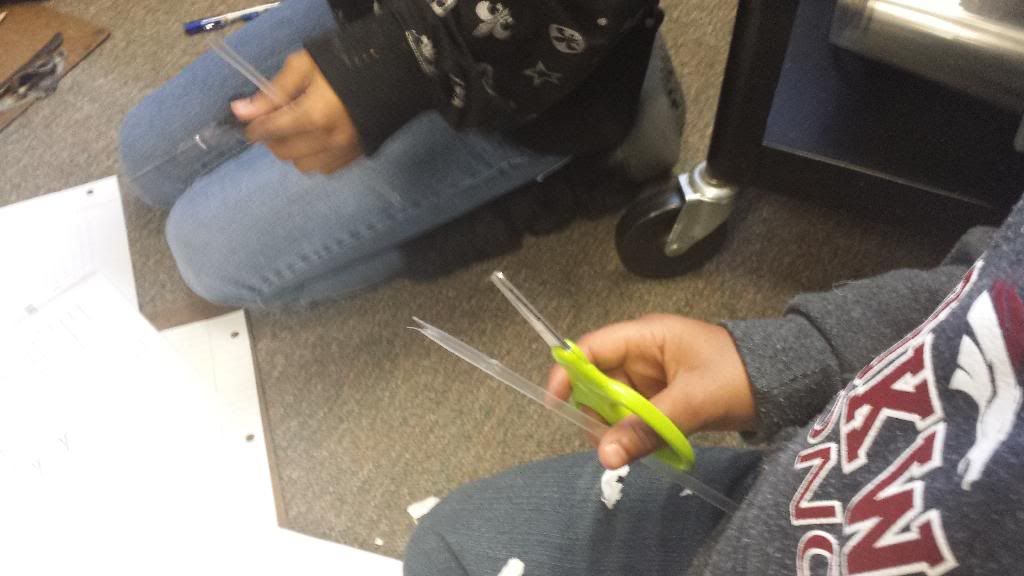Do you ever have those teacher moments when you are actually surprised how well a lesson goes? Me too! Our county provided us with a suggested list of lessons and experiments to try for each of our Science units. Since we are doing Sound at the moment, I downloaded the unit plans. There were some great ideas in there, but I thought they were a bit short to carry an entire 45 min block of time. When it hit me. Why not turn them into stations and have the class rotate through them?
Woot!
I had three stations set up for the day, but quickly realized my 25 students would not work so well in such large groups. They need smaller groups to be more successful. So I came up with two more on the fly. Cuz that's how teachers roll, right?
The first one from the county was to create a straw flute. The kids were to cut an arrow point into the bottom of a straw and then pinch the middle and cut a tiny hole there. As they blow through the flat end a whistling noise will be produced. There was a question sheet I had in a page protector at the station. Each child came to the group with pencil, paper, and clipboard. As they rotate through the stations they would draw a squiggly line underneath as they finish one. This saves on paper and copying.
The second was a weird one. It involved a wire hanger and two pieces of string. They were to tap the wire hanger with a pencil first to listen to it. They could tap the hanger with other objects and see if the pitch changes. Next they were to tie a 6" piece of string to each corner of the hanger, wrap their fingers around each bottom of the string and stick their fingers in their ears. They looked so goofy doing this, but they really got into it.
The final county suggestion was to use three glass jars filled with varying amounts of water. They were to tap each and describe the different sounds they heard. They also had to determine which jar made the loudest and softest sounds.
My two lessons were to look at some handmade musical instruments students have made in the past and describe materials and purpose for each of these instruments. This was to act as a preview of the Science Project I was about to send home for them. The other lesson worked with the computer. I turned on the media player and played a tune without sound showing the visualizations page. The students were to determine what was happening, why the bars got taller and shorter, why some always stayed short, and what type of pace the song was. Then they got to turn on the music and check their predictions. They loved doing this.
I let them bang away and talk through the stations for about 7 mins before I had them all stop and start the writing portion. Otherwise this group would use the whole time to tap, strike, hit, smash, throw the instruments and never do any serious thinking. We rotated the stations after 15 mins. We weren't able to get every child through every station, but the interaction and results I was seeing them write were really awesome. I told them we could save the stations for another day if we finish early.
Hurray for Science!






No comments:
Post a Comment